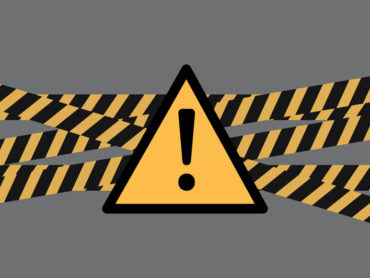Five Steps to Eliminating the PR Fear Factor from Your Next Crisis
Just like a horror movie, a crisis can capitalize on all of the worst fears of business owners. Corporate crises can threaten to erode the trust and good will that is at the core of your relationship with your customers and clients –especially when you consider that today’s consumers skew towards being distrustful of brands. But, if given a good reason, consumers can also become fiercely brand loyal.
You might think this means that your goodwill is cemented through thick and thin but it is quite to the contrary. Your relationship with your consumers is contingent on maintaining their continued trust. And the biggest threat to that trust can come from a crisis of some sort.
Crises are an unfortunate fact of the business world. Companies have seen decades of goodwill and trust eradicated over the course of a few days or even hours due to a poorly managed crisis. The proper management of one can make your company’s horror story a little bit less frightening. But where should a company start to avoid a self-produced version of the latest Halloween blockbuster?
1. Plan for a Crisis – If everyone who thought a crisis wasn’t possible at their company was right, then business writers would have a lot less work and the business social media world would ultimately be a fairly unexciting place. Unfortunately, crises in the business world are inevitable. Of course, depending on the scale of your company they can vary in scope and scale but because it’s your business, every crisis is a massive crisis. Periodic diagnostics are important. Think about where the potential exists for a crisis and develop a plan for dealing with a hypothetical crisis. A good crisis communication plan includes a chain of command designed around who approves outside communications and action items to execute during a crisis, a communication protocol designating the spokesperson and the social media guidelines for corporate accounts.
2. Acknowledge the Crisis – Despite your best efforts, a crisis strikes and member of the media contacts your business. What next? Countless companies issue some variety of the “no comment” answer upon first learning of a crisis. Little do they know – “no comment” is a comment. By offering zero insight into a crisis situation or direction at what the next steps are, your company allows the public and media to shape the narrative. The worst thing you can do is let your brand’s reputation and public image be shaped by speculation and the rumor mill. With that is mind, it’s important to remember that nothing is off the record when speaking to the media. A good rule to live by is: Do not say something to reporter that you do not want to be published. So, what do you do if you can’t say “no comment” but you may be reluctant for whatever reason – not enough information or events are still unfolding, for example — to speak on the record? Issuing a holding statement along the lines of “We are aware of the situation and are looking into it,” helps people know that you are not going to ignore the issue, are looking into it and that a future update will be issued. If you need to apologize, then apologize. This is not the time to show excessive pride or pick fights.
3. Get the Facts – From the moment the public is aware of a crisis the clock starts ticking. The speed of today’s media landscape means that a crisis can begin and spread very quickly and it won’t wait until tomorrow’s news cycle. You typically do not have a great deal of time to get to the bottom of the issue, particularly if your crisis is highly public or massive in scale. That is where the preplanning for crises comes in handy. This will allow you to quickly and effectively respond as soon as you have the facts. By all means, do not lie, speculate or be intentionally vague. Today’s consumers are not as limited by their access to information as they might have in the past. Every single consumer today is an investigative reporter with a wealth of knowledge at their fingertips at a moment’s notice. If something you say is an outright lie, it will get exposed. Any short-term benefits gained by lying will quickly disappear and make the post-crisis recovery even more difficult. A vague statement or guess that turns out to be wrong can make your company appear to be bungling the response or unsure of what is actually happening within the company.
4. Resolve the Crisis – You can only message so much if the root cause is not solved. Not fixing the problem that caused the crisis in the first place is no better than lying about it. If you promise to fix something, fix it. If you promise people some form of compensation, give it to them without strings. The other side of crisis communication that a vital piece is an effective internal communications response. For many workers, it can be maddening to work at a company suffering through a crisis, and being kept in the dark by management only hurts employee morale. As quick as rumors spread among the general public, they spread just as fast among your workers and internal stakeholders. Keeping employees in the dark will have much of the negative consequences of keeping the public in the dark with added human resources issues down the road.
5. Evaluate Your Response – This is often the forgotten part of effective crisis communication. Once you are through the crisis, looking back on your response can pay dividends for the next time. Although you might want to just move on quickly, remember the old adage – those who do not remember history are doomed to repeat it. It is always a good idea to hold a debrief with key stakeholders to evaluate what steps were taken and where the strategy needs to improve next time. These steps can be rolled into your ongoing crisis communications plan to better formulate future responses.
Overwhelmed? It is tough enough for a company to manage day to day operations, let alone plan for a hypothetical crisis. This is why you should hire a public relations firm that has experience with navigating crises from plan development all the way through to post-crisis evaluation. Reach out to me today at djohnson@randjsc.com to see how I can help your company avoid a starring role in a communications crisis.





















































































